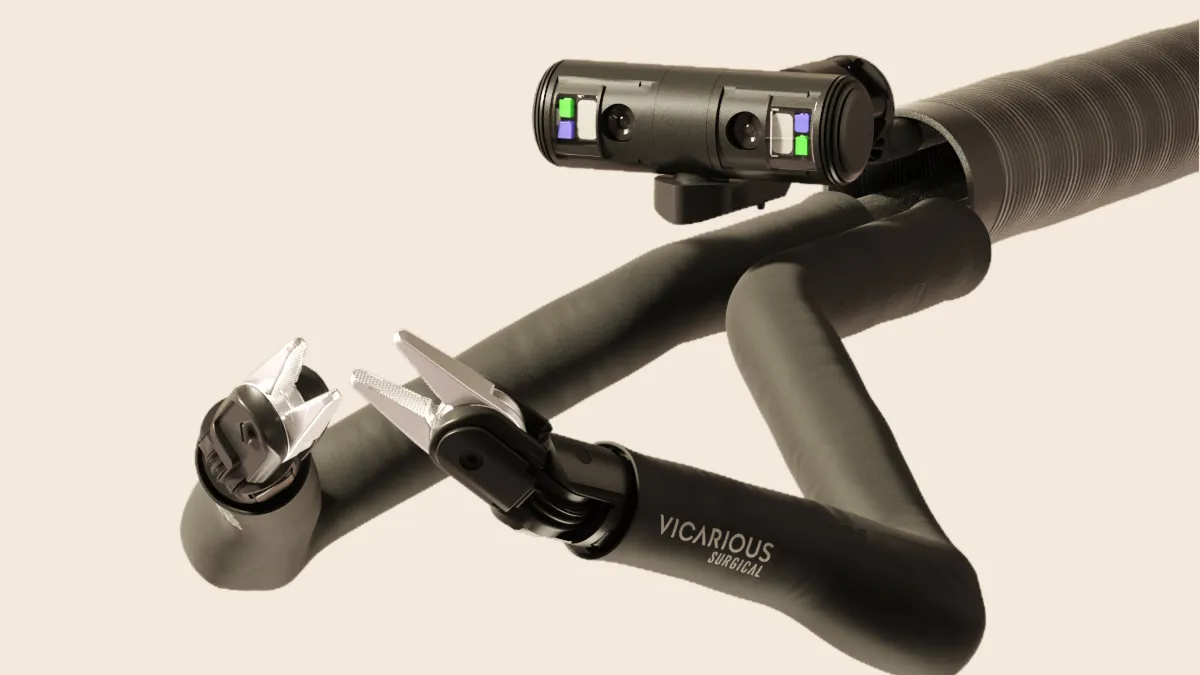Dive Brief:
- Vicarious Surgical, which hopes to challenge Intuitive Surgical’s dominance in the robotic surgery market, said it expects to perform a ventral hernia repair, the first procedure in a patient using its system, in mid-2024.
- The Waltham, Massachusetts-based company said on Thursday that it received clarity on the clinical and regulatory pathway for its surgical robot after its latest pre-submission meeting with the Food and Drug Administration.
- Based on guidance and input from the FDA, Vicarious plans to complete a clinical trial with a total of 30 to 60 patients, including people from outside the United States, CEO Adam Sachs said on the company’s earnings call on Thursday. It expects to file a de novo submission to the FDA in early 2025.
Dive Insight:
Vicarious, whose backers include Bill Gates and medical device maker Becton Dickinson, aims to improve both the cost and efficiency of surgical procedures with its robotic system. But the path to commercialization has been bumpy, with the company forced to reduce its workforce this year to preserve cash.
Vicarious said in February it would lay off 14% of its staff, giving it a cash runway of about two years.
With the start of its clinical trial in sight, the company said its staff is now focused on assembling and integrating initial units of the robot.
“Based on a series of meetings with the FDA, we now have clarity and reassurance on our path to complete both our clinical and regulatory submission plans,” Sachs said on the earnings call last week.
The company also said it signed a fourth major U.S. hospital system as a partner, bringing the total number of hospitals it is working with to over 250.
BTIG analyst Ryan Zimmerman said the timeline for initial human cases was slightly extended from his projection, but the size of the clinical trial was largely in line with expectations. “The wildcard will be cash burn as [Vicarious] moves into FY24,” Zimmerman wrote in a note to clients.
Vicarious reported a wider net loss of $15.3 million, or $0.12 a share, in the second quarter, compared to a net loss of $1.5 million, or $0.01 a share, in the same period a year ago.
The company had $82.8 million in cash, cash equivalents and short-term investments as of June 30 and continues to expect a fiscal 2023 cash burn of $55 million to $65 million.









